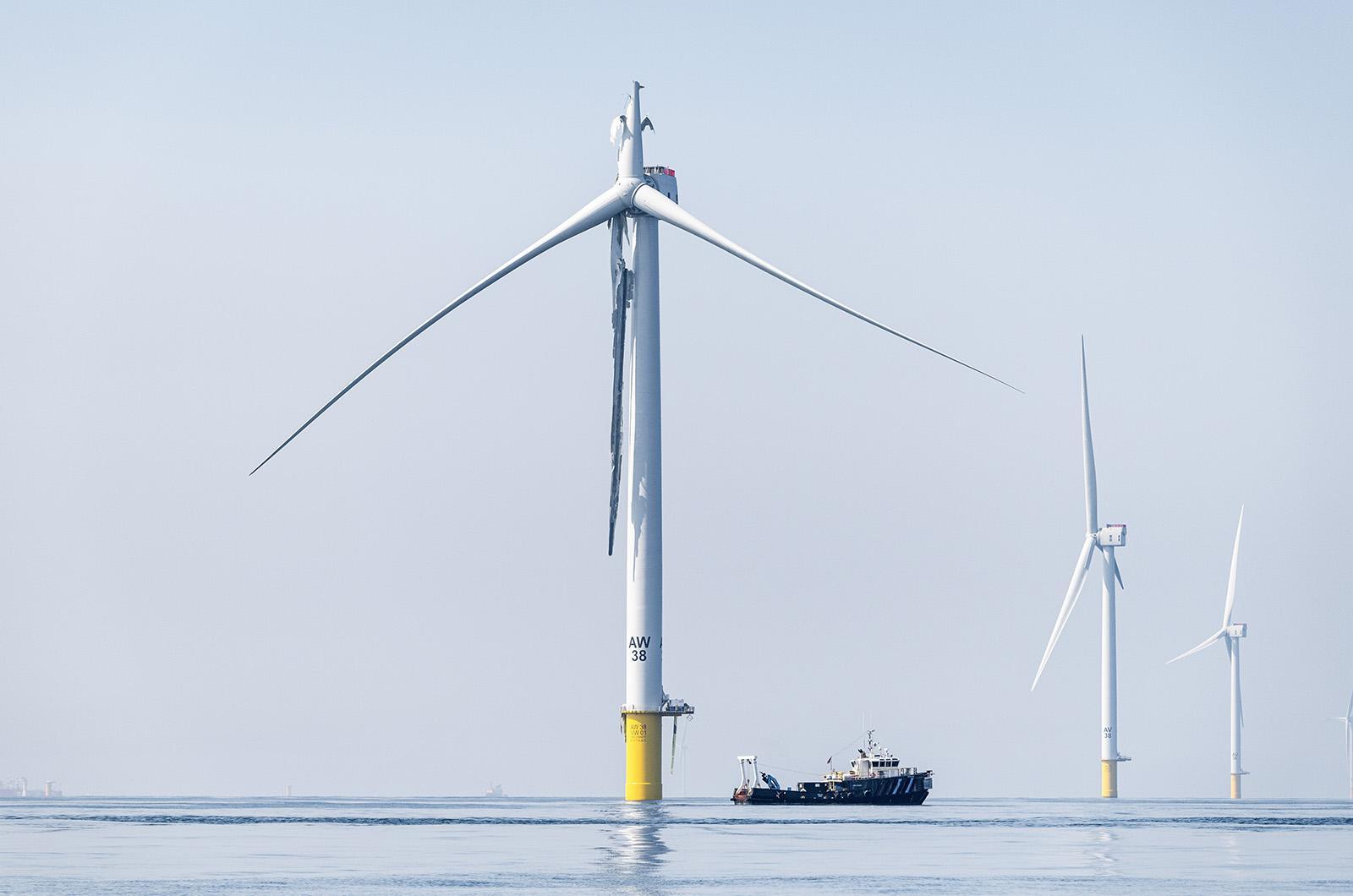The fledgling offshore wind energy industry being built to the Vineyard’s south is facing new uncertainty after former President Donald Trump emerged victorious in this month’s presidential election.
Mr. Trump, who has long railed against wind turbines, threatened to halt the industry on “day one” of his presidency throughout his campaign, raising concerns for advocates who feel wind energy is a major factor in meeting state and federal climate goals.
But some, who may not necessarily share most of the president-elect’s views, were heartened to have a president more skeptical of the new energy source, especially in light of the Vineyard Wind turbine blade breaking off the Vineyard’s coast this summer.
Mr. Trump has not been shy about his views on wind turbines, which he claims have been deadly for birds and whales.
“We are going to make sure that that ends on day one,” Mr. Trump said at a May rally in New Jersey. “I’m going to write it out in an executive order. It’s going to end on day one.”
Several experts and state officials felt the incoming president could enact a slowdown of any projects that do not currently have all of their federal permits, though peeling back approvals for projects such as Vineyard Wind and Revolution Wind would prove difficult.
“I do think that the regulatory agency is where we are more likely to see bottlenecks,” said Kate Sinding Daly, the senior vice president for law and policy at the Conservation Law Foundation.
Kelt Wilska, the offshore wind director for the Environmental League of Massachusetts, believed that grants already allocated to help boost offshore wind couldn’t be pulled back, but tax incentives to build up the renewable energy projects and infrastructure could be on the chopping block.
He argued that quashing the nascent offshore wind industry would go against many of Mr. Trump’s other beliefs, such as backing American jobs.
“There’s a question of can Trump do things to slow down the industry,” Mr. Wilska said. “Yes. Should he? Absolutely not.”
Others welcomed a new perspective on offshore wind energy, which had drawn criticism even before a turbine blade broke at Vineyard Wind, scattering debris on the nearby shores of the Vineyard, Nantucket and beyond.
Cheryl Andrews-Maltais, the chairwoman of the Wampanoag Tribe of Gay Head (Aquinnah), has argued that the Biden administration moved too fast on approving offshore wind projects. In July, Ms. Andrews-Maltais called on the federal government to stop all construction and operation of turbines until each blade was reinspected to prevent further breaks.
Despite several more blades being found defective, Vineyard Wind has resumed construction.
“We are troubled that it’s still full steam ahead under the current administration,” she said.
Though she disagreed with much of Mr. Trump’s policies, Ms. Andrews-Maltais felt he understood the need to do more study on the implications of turbines taller than the Statue of Liberty being installed in the ocean floor.
“The incoming administration recognizes that offshore wind is not a panacea,” she said. “We are hoping that the new administration will hear us and work with us.”
A spokesperson for Avangrid, one of the parent companies for Vineyard Wind, did not return a request for comment, nor did a spokesperson for SouthCoast Wind, which is currently in the permitting stage.
The Nantucket select board held a public forum on the SouthCoast Wind project earlier this month, and several residents, including select board member Dawn Holdgate raised the potential for things to be different under the Trump administration.
Some at the forum expressed interest in halting permitting for the project altogether.
“We’re no longer in a position of weakness,” Charlotte DuHamel said at the Nov. 19 meeting. “The tide has turned, everyone can see it. The Trump administration, whether you like it or not, is bringing a sea change not only to this industry, but to how the negotiation works.”
State Sen. Julian Cyr, a Democrat who represents the Vineyard and Nantucket at the State House, said there would be uncertainty around not just offshore wind, but other major infrastructure projects such as the replacement of the Cape bridges.
“There’s a lot of bluster about rolling back incentives for renewable energy,” he said. “Whether it comes to pass remains to be seen.”
He worried that Mr. Trump may opt to push for offshore drilling along the Atlantic coast, and Mr. Cyr introduced a bill that prohibits ports from assisting with offshore oil exploration or development.
No matter what the strategy from the nation’s capital, Mr. Cyr said it was important for Massachusetts to stick to its values and continue to support green initiatives.
“Whether it’s about moving forward on the climate crisis and renewable energy, to protecting basic rights and freedoms, we will be unyielding to the extremes we may see out of Washington,” he said.







Comments (22)
Comments
Comment policy »